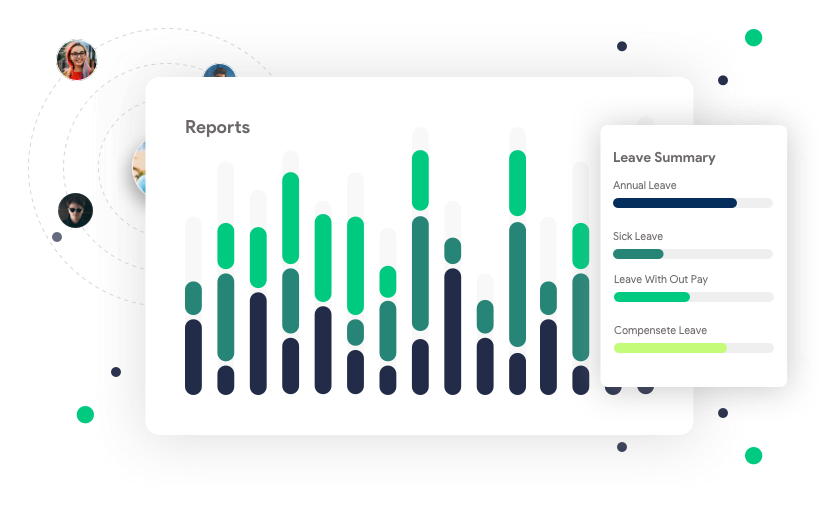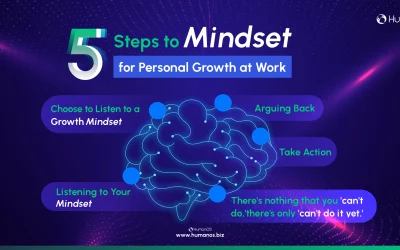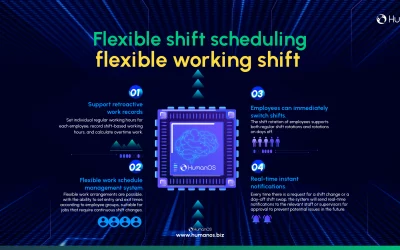In organizations, companies, and various businesses, work is typically done for 7-8 hours each day. However, in certain industries such as hospitals or industrial factories, work may extend up to 24 hours, resulting in the need for work shift management. Work shift refers to the rotation and scheduling of work during different time periods.

While working in shifts has its advantages, such as the ability for workers to choose their preferred working hours and avoiding excessively long work shifts, it can also have negative impacts on health, particularly for those working night shifts. Additionally, managing work schedules and shift rotations can be challenging and stressful for HR personnel, leading to increased stress and pressure in the workplace. Therefore, having an effective and efficient HR solution for shift work management is crucial.
What is Shift Work?
Shift work or work in shifts involves working in time blocks or rotations to ensure continuous coverage and responsibility for tasks. The specific format of shift work may vary depending on each organization’s requirements to achieve maximum efficiency. The following are common types of shift work:
- Fixed Shift System: This is a non-rotating shift system where working hours and responsibilities remain constant.
- Fast Rotating Shift System: This system involves frequent rotation of working hours, allowing employees to have different shifts and achieve a better work-life balance.
- Slow Rotating Shift System: This system slows down the rotation of work shifts, such as changing shifts every quarter or half-year.
Therefore, managing shift work is essential for HR departments. Working in shifts during special hours, such as overnight or on weekends, can have a greater impact on employees’ well-being compared to regular working hours. This necessitates adjustments in salary calculations, overtime, and shorter time periods for HR personnel, making it more challenging to calculate working hours and salaries accurately.
Why is HR Solution Needed?
Spending excessive time on repetitive and complex tasks, along with stress and time constraints, can prevent HR personnel from developing themselves and can have negative consequences for the organization. This is especially true when it comes to enhancing competitiveness and transforming the organization towards HR Transformation. Therefore, opting for an HR solution to reduce workloads is essential.
Supports Regular and Overtime Work
HumanOS supports both regular and overtime work, allowing individual employees to define their work shifts. Real-time overtime calculations and payroll calculations are made easy and user-friendly, saving working hours.
Work Schedule Management System
The work schedule management system offers flexible configurations, allowing HR to set working hours and breaks based on employee groups. This is suitable for jobs that require constant shift rotations, such as hospitals or industrial factories. If you are already using HumanOS, activating the shift work function can be done without any additional costs at @humanos.biz.

Real-time Reporting
Data is stored on the cloud and processed efficiently, enabling instant report generation. Exporting reports is made easy on HumanOS, eliminating processing time and, most importantly, reducing the cost of the most expensive resource: working hours.
Having a reliable shift work management solution like HumanOS is a great tool to efficiently handle work schedule management. It serves as a vital aid in driving the organization forward, reducing excessive workloads, and adding productivity to the workforce. It promotes a balanced work-life for employees and helps companies grow sustainably.



